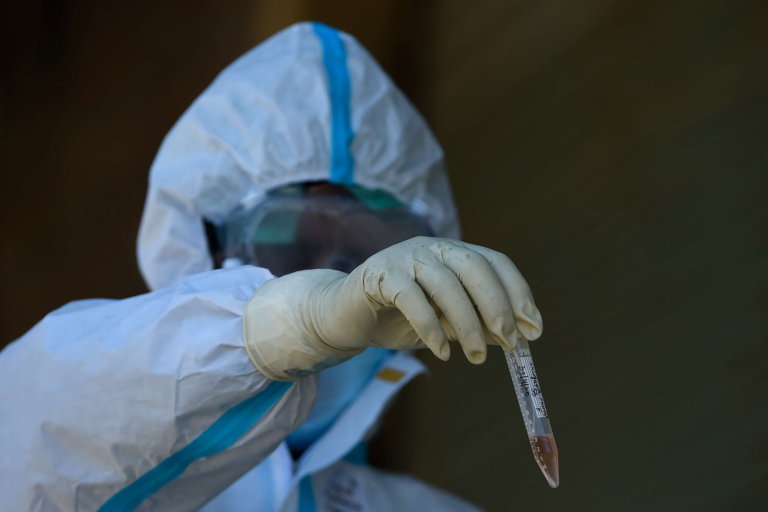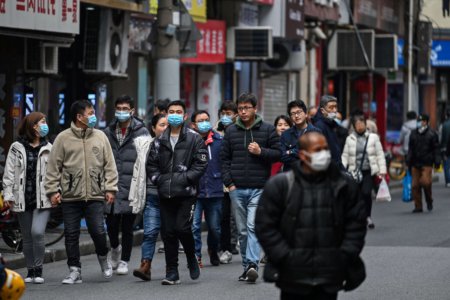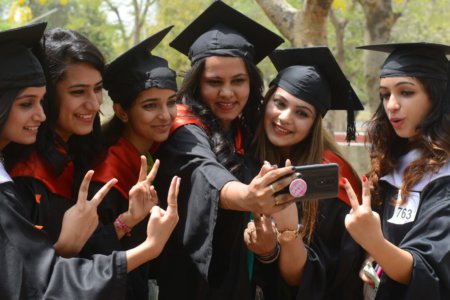
Indian nationals enrolled in Bachelor of Medicine and Bachelor of Surgery (MBBS) programmes in Chinese universities have staged a protest on March 19, 2022 outside of the secretariat in Kerala, demanding recognition for their practical training. For two years, Indian MBBS students locked out of China have had to contend with online learning and completing their in-house training in local government and private hospitals.
“We were forced to come back from China in January 2020. It’s been two years since we have been attending online classes. We don’t have any recognition of whether the Indian government will accept us with these online classes,” Murshid Aleen, a fourth-year medical student at Yangzhou University, told ANI News. “Most of us are doing practical at various government and private hospitals in Kerala, but it is not recognised.”
The National Medical Council has already said that a medical degree without actual, practical learning will not be considered as MBBS in India. Thousands of MBBS students who had to return from China in 2020 are facing this problem. Read here to know more https://t.co/kN9K8ff6Ay
— Edex – The New Indian Express (@Xpress_edex) March 21, 2022
The protest was organised under the Foreign Medical Graduates Parents Association (FMGPA), an association of parents of overseas medical graduates in India. FMGPA’s Vice President Subair MC was quoted saying that students want official authorisation from the state and national government to accept their education as “valid”. India’s National Medical Commission has previously declared that it does not recognise or approve medical courses done entirely online.
While many countries have committed to reopening international borders to admit foreign students, China has refused to budge from its zero-COVID policy, leaving Indian MBBS students with little option but to play the waiting game.
Future on hold for Indian MBBS students in Chinese universities
With years of study on the line, students are distressed over loan repayment and having their medical degrees rendered useless. Aleen said that they have conveyed their concerns to the central government through an online portal. “We are helpless right now. We need a certificate from the government that we are going to the hospitals for a certain period and we are getting the observation with certain departments,” the student added.
One Indian MBBS student held a placard that drew parallels between their situation and Indian medical students forced to flee Ukraine, who are similarly pushing for the government to intervene in their plight to transfer out of Ukrainian universities.
Aashutosh Kumar, 24, has been at the receiving end of acerbic comments from others who doubt his doctoring skills. “Sometimes, it becomes embarrassing and affects my confidence. Being an MBBS student, I am not able to get practical knowledge,” the fourth-year Youjiang Medical University for Nationalities told Edex Live.
For most MBBS students, online classes are poor substitutes for in-person instructions, especially in a discipline that requires extensive practical training.
“While other countries are sending their students back to China, we don’t know what the Indian government is doing,” Shahnawaz Khan, a student at Anhui University who insists MBBS can’t be taught online, was quoted saying. “[We] should at least be given a chance for practicals in Indian colleges. We are even ready to pay for it.”
Indian medical students enrolled in Chinese universities are suffering for no fault of theirs. The career of thousands of medical students is at stake the government must intervene.#PMSavelndianStudentsOfChina#takeUsBackToChina pic.twitter.com/kdQtkuHEF5
— Pankti Chaudhary (@PanktiChaudha13) February 13, 2022
Indian students have been equally vocal in expressing their disappointment online. Hashtags such as #PMSavelndianStudentsOfChina, #TakeUsBackToChina and #GOIHelpIndianStudentsOfChina have consistently been used online to draw the Indian government’s attention for a resolution to their ongoing dilemma.
Transferring to local institutions isn’t a viable option for many, as Indian medical colleges cost significantly higher than their tuition fees abroad. There are only around 300 government-run medical schools, and the competition for a shot at admission is extremely stiff.
“This whole situation reveals some sad facts,” writes Anurag Mehra, a Professor of Chemical Engineering and Associate Faculty at the Centre for Policy Studies, IIT Bombay. “We are simply unable to nurture the great ‘demographic dividend’ by training, and then retaining, young people who want to be doctors.”









